Something Beautiful
The Sisters K by Maureen Sun
It’s been a very long minute. During the last few months I’ve thought of subjects to post about and hesitated because, given the monstrous events cresting and crashing around us—especially the ongoing, rapidly escalating horror in Gaza and now in Lebanon, Northern Israel and the West Bank—almost anything else, even things that I know are important in their own right, seem trivial. I’ve also, frankly, become subject to exhaustion that feels physical.
Even in that context I want to write about this book. Because I find it, this debut novel by Maureen Sun, to be beautiful and powerful, even important. Given the aforementioned monstrous events, it might seem strange to call a book about the intimate struggles of one anguished family “important.” What makes it that way to me is that Sun asserts and renders basic human passions in such a unique tenor and with such intense language: her sensibility is vital, at times coarse—but also precise and extremely sensitive, with care for everything in her vision. That intense care for the human feels crucial now in the increasingly mechanistic, brutish, meme-world that has been built up around us; for me Sun’s sometimes ruthless understanding acts like an emotional and mental balm.
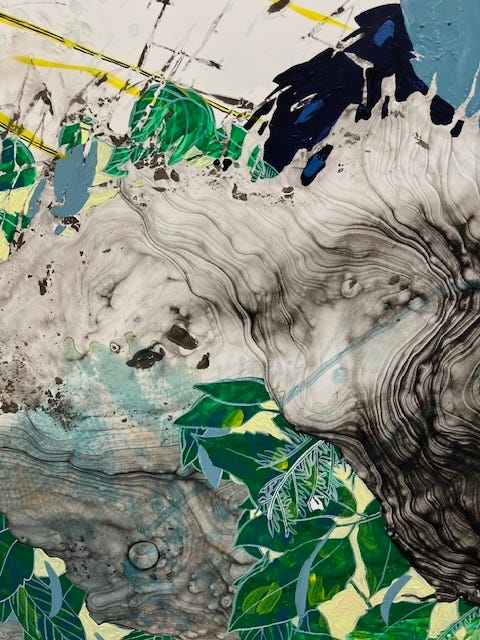
As the title suggests, the novel draws inspiration and influence from The Brothers Karamazov—it is about a fraught inheritance—but it doesn’t set out to re-do the book. Sun’s dying patriarch is Eugene Kim, a cheese-ball real estate mogul and comically awful person who, though on his death bed, verbally and physically abuses anyone near him, forcing his three daughters and one illegitimate son to endure his malevolent caprices and volcanic insults as they clean out over-flowing mugs of sputum and deal with his literal shit. Two of the girls, Sarah and Minah, openly despise him; the son (Edwin) seeks his money with calm, shark-like focus; the youngest girl (Esther) is the only one who feels real compassion for him—a compassion that is almost impersonal in its constancy, and which is perhaps as much about the maintenance of Esther’s own dignity as anything. She and Edwin are the only ones who make themselves fully available to physically care for Eugene (there is a parade of victimized or buffoonishly scheming home-aides), as he rants that the truly gentle Esther is “a dirty whore” and gloats, albeit affectionately, as exhausted Edwin scrubs his toilet.
Esther would be happy with a fraction of the inheritance, even though she lives an aimless low-income life (she is not actually a whore). Sarah, although she has just lost her job as a teaching adjunct, hates her father so much that she is loath to take anything from him. But Minah, a lawyer, wants the money with near-murderous urgency, seeing it as payback for the years of harsh abuse she endured at Eugene’s hands as a child. (A corollary of Dimitri K, Minah was born of Eugene’s first wife who was, according to him, a “low-born bitch” who fled to Korea to escape him; Esther and Sarah were born of the same mother who died when they were children leaving them at the mercy of their splenetic dad.) Of the three girls, only Sarah has a clear shot at the money because…she is the only one her crazy father loves. No matter how much she rejects him, no matter how much scorn she shows, Eugene sees her as his only real child and pretty much abases himself before her—which feels to Sarah like another form of violence. She’d rather have nothing to do with him, but Esther and Minah—especially Minah, the most powerful of the three—are counting on her to clinch the deal, to freeze out the bastard son their father has just now sprung on them as a possible heir, and to share the spoils with them.
It sounds dark because it is. All the characters are in varied states of anguish; everyone except Esther is hypervigilant, calculating, furious and desperate. The sisters are deeply attached to each other, even as they are suspicious of the feeling; they experience their attachment most intensely through shared pain. On meeting Minah for lunch after a long separation, Sarah reflects:
“The very sight of Minah seated at the café was unutterably moving…The past with all its pain was suddenly pulsing warmly in her, too; it lit them both up from within. The pain, too, was changing. It was mysterious and beautiful, like the organic luminescence of uncanny life in the awful black depths of the sea.”
The writing is beautiful—but sometimes, as I read, the depth and weight of pain plus meanness was almost too much. At times too I felt resistant to what seemed like yet another account of masculine abuse. Then my head got snapped around by a dinner conversation between Minah and Sarah during which Minah is hammering her sister about why she needs to manipulate their father for all their sakes:
“I need the money. I need to have a better life. You don’t want children. I do.…I want a clean house for them. I want to feed them organic food and dress them in nice clothes and walk them every morning to a good school in my neighborhood. That doesn’t make me greedy.…I want to have children who are radiant and happy like the women I can’t compete with, not without the luster and advantage of these things I can’t really afford. I want them to grow up safe and spoiled with enough childhood happiness stored inside them to last them their whole lives. You must’ve met people in your life who could never imagine what we’ve grown up with. They tell you, ‘You must be exaggerating, your father only did what he thought was best for you.’ I want my children to be like those people. Their happiness is the most beautiful thing in the world. It’s beautiful and ridiculous and priceless, like a Faberge egg. You might find them absurd, but you could never bring yourself to damage one because it is priceless. Because the world is more beautiful with them than without.”
This is a small piece of a long conversation which I began by finding Minah irritatingly venal and crass, and ended feeling stirred by her “melding of pathos and fierceness,” her unfamiliar (to me) form of idealism in reaction to pain. Her ideal of happiness as a pure state is cartoonish—and it is moving to consider that such an ideal may be necessary for someone who doesn’t know what happiness is yet wants more than anything to create it for children.
And the image of some people as “Faberge eggs” is so good! Minah may want that for her kids (and one can guess how unpleasant her ambition might actually be for those kids) but Sarah is far less enchanted by people so loved and so protected from harsh reality. Indeed, both Sarah and Minah view love with wariness, and for good reason; love in this story—as in life—is often treated with contempt, sometimes understandably so. Sarah herself feels contempt for what she imagines the guarantee of love does to people:
“If Minah was selfish, she was not selfish in the truly objectionable way that deeply cherished children so often were. She had self-respect, but not the kind of self-love that governed these children as they grew up. This love of self they interpreted as loving goodwill for others, for which the world’s privileges and love were their due. This was the true, original selfishness, the outrageous belief that one was owed love, when Sarah and Minah knew that no one was owed it, no one could even ask for it. Decency might be a requisite, but love was always arbitrary, always a gift.”
I don’t believe or disbelieve this, but I love the quiet fury and expressiveness of it. The sisters are tormented by and wrestle with such thoughts throughout the book, and it is Sun’s unconventional choice to put so much of that struggle in dialogue, pages of it, sometimes between a sister and one of the vivid secondary or even minor characters. Unsurprisingly, cruelty is much chewed over, stared at and swum through like a polluted river, and not just the cruelty of the father: the will of even decent people to inflict suffering is fully acknowledged here. Minah and Sarah admit to themselves that they want their father to suffer, and they even sometimes enjoy each other’s sufferings. Cruelty is understood as a part of human nature but there’s also real horror of it—and mystery around it. Mr. Kim is a monster of cruelty and yet he is compelling—a fantastic character—because of his raw vitality, his appetite for life and his goblin humor.
Edwin’s mother, Ms. Yoon, is one of the most poignant minor characters in the novel; she’s a nerd and a grind, “a woman with a clipboard” who comes to Eugene’s attention when one of his business associates makes a joke of her, an insult to which she is oblivious:
“Eugene was drawn to the challenge of seducing a woman without softness. He wanted to conquer the coil of energy within her, to see her broken like a bent wire in sexual disarray. She slept with him two or three times to get pregnant…The father didn’t matter to her…At the center of her being was a bright, clean flame. She did not know what to do with it, except pass it on to a child. When Jeonghee died after Edwin was born, Eugene tried to marry the mother of his son. He wanted to legitimize Edwin and for her to raise his daughters, and she refused. He planned to beat her, to rape her, to make her submit, and she, taking in his intentions when she opened the door, slammed it and called the police. For this he bore her unbegrudging respect. He loved to recount the story of that night to his acquaintances and to Edwin.”
Another man would be angry or shamed or both—but Eugene loves to recount it! Even on his deathbed, he’s energized by haranguing Edwin about the fucked up women in his life:
“They don’t know how listen. Never listen! Your mommy don’t listen, but she is strong. She is very strong. One time I try to make her listen, I want to make her listen to me and she call police….I say, ‘Okay! Okay! You win. I don’t touch you…I pay you to see my son, okay? She like all women, they just want money. Your mommy a good woman. She’s a good woman. But—she not really woman. Not like real woman should be. My first wife is beautiful. Very beautiful! She’s crazy. She wants to kill me, I try to kill her. If she don’t run away, I kill her probably….The next wife is nice, good woman. Better than your mommy, better than that low-born bitch. I’ll never forget her….She was the only one I loved. She made me feel beautiful things.”
It's awful, but—there’s pathos and ferocity here too. It’s hilarious because it’s so full of blundering contradiction, such snorting and pawing, with plaintive notes of respect and the wish to love. Like Minah, Eugene has a cartoonish sense of love and happiness stunted by rage and deprivation which he has bequeathed to his kids. His cruelty sometimes seems to them like an outside force that possesses and distorts him, an infection they are afraid they’ve caught. But for Esther though it is also something very different:
“What was the source of his crude appeal? Did it come from the same source as the strange vitality that glowed behind his memorable grin?...Esther perceived a relation between his energy and the fervor, ingenuity, charisma, dedication, and generosity she’d encountered in more noble characters. If she suggested the affinity to her sisters, they would no doubt deem it sacrilege, a desecration of any understanding of goodness or beauty. For Esther, as her hand rested in her father’s, his vitality appeared as a mysterious capacity that could take manifold expressions—and she was drawn to this mystery in him and in others. The strident note of cruel need in Eugene’s voice struck a corresponding chord in her that filled her with clarity and courage, like a bell flooding a plaza with its rousing peels.”
Esther is unmistakably the Alyosha character and as such she is a rarity in modern fiction—almost selflessly kind, intuitive and unworldly, she has mystical quality that is chthonian in nature—something not stereotypically associated with loving-kindness. (Indeed, Esther’s benignity is convincing because it comes in such a non-stereotypical guise.) When Edwin unexpectedly encounters her in their father’s apartment, he notes something “feral about her…less innocent than mindless, almost chillingly other.” Then she snaps into focus, and he realizes that she is “perceptive and self-possessed, canny like a fox with its discerning slit pupils.” Her own sisters also repeatedly compare her to an animal:
“Esther sat at the foot of the bed. She looked at her sister with an expression that struck Sarah as expressionless. Her eyes were at once blank and inquisitive, like those of a dumb animal with sharp instincts… ‘What about you? What are you going to do?’ [Sarah] knew her questions were cruel. But she didn’t want to stop herself, she wanted her sister to shake off her animal strangeness, to become again the human entrenched in the same unhappiness as herself.”
Despite her peculiar affect, Esther is in many ways less damaged than her sisters because as the youngest she was ignored by her father rather than abused, and afforded some tenderness by her otherwise feckless mother, plus extra from a kind neighbor. Her sisters are impatient with her but also protective—and, in vulnerable moments, they crave her strange grace, her curative strength. These qualities in Esther are so strong and natural that Sarah sometimes actually finds her intimidating, finds her clarity “brutal.” In terms of character, this makes great sense; of all the family, weirdo Esther is the lone standard-bearer of love, which Minah and Sarah are afraid to trust. She also has a power that the powerful Minah is almost humbled by:
“Consciously or not, Esther was always seeking eye contact. It did not seem entirely intentional to Minah, but another gesture of her sister’s openness—her simplicity—which gave her the power to both discomfit and disarm…Esther was someone who could puzzle and pain her. She was also someone who could purify silence.”
When I got to this part, I actually said aloud Who writes like this? The language is so unique, ardent and indifferent to convention. Someone might, I guess, ask “what does it mean to purify silence? All I can answer is that in the context of this character, I feel what it means, what it would feel like to be in Esther’s presence.
I keep wanting to quote passages because the writing is so good, much better than any summary or analysis. I especially love the intimate family material but there are other beautiful and engaging aspects of the novel. There is wonderful chapter in which Sarah teaches Teju Cole’s Open City to a bunch of recalcitrant and disapproving students; another chapter focuses on Sarah’s lunch date with Minah’s fiancé in which they congenially debate and discuss why Korean culture is so compatible with Christianity; much later they more personally and bitterly discuss forgiveness, evil and the law of antiquity—for Sarah, the law of the mother—vs. Christianity, the law of the father.
I can have a reflexive dislike for novels of ideas, and I realize that this sounds like exactly that. But it doesn’t read like that. It doesn’t read like that because of Sun’s attention to the material and visceral elements of each character, her rare tactile apprehension of emotional life and how that interacts with thoughts/ideas. And then there is her attunement to what might be called natural goodness. Terrible things are narrated in the story, events from which the sisters may not recover; there is bitterness and regret. And yet goodness abides, in the character of Esther and also in her sisters’ receptivity to her:
“Esther’s great kindness was to care for the animal part of you, the humanity that wasn’t personal and that ached more deeply. She let you rest, she helped you to breathe, she made your body feel whole. And so she tried to protect the deep tissue of innocence in her sisters and in her father, the fundamental innocence that could never stop believing that you should know care and not harm. Sarah had never appreciated this more about Esther than she did as she tried to reciprocate, stroking her sister’s back gingerly, holding her breath as that strange, warm life rippled under her palm.”
This paragraph is more than beautiful, it is heartening. It is the opposite of what I called the ‘mechanistic, brutish, meme-world.’ What it describes is subtle and delicate, even fragile. But it is necessary for life, at least for a life that is worth living. I hope I have conveyed that this novel comes with many insights and pleasures, including comedy. But it is this evocation of the “deep tissue of innocence,” present in the human body regardless of personality that makes this book important. Particularly now.


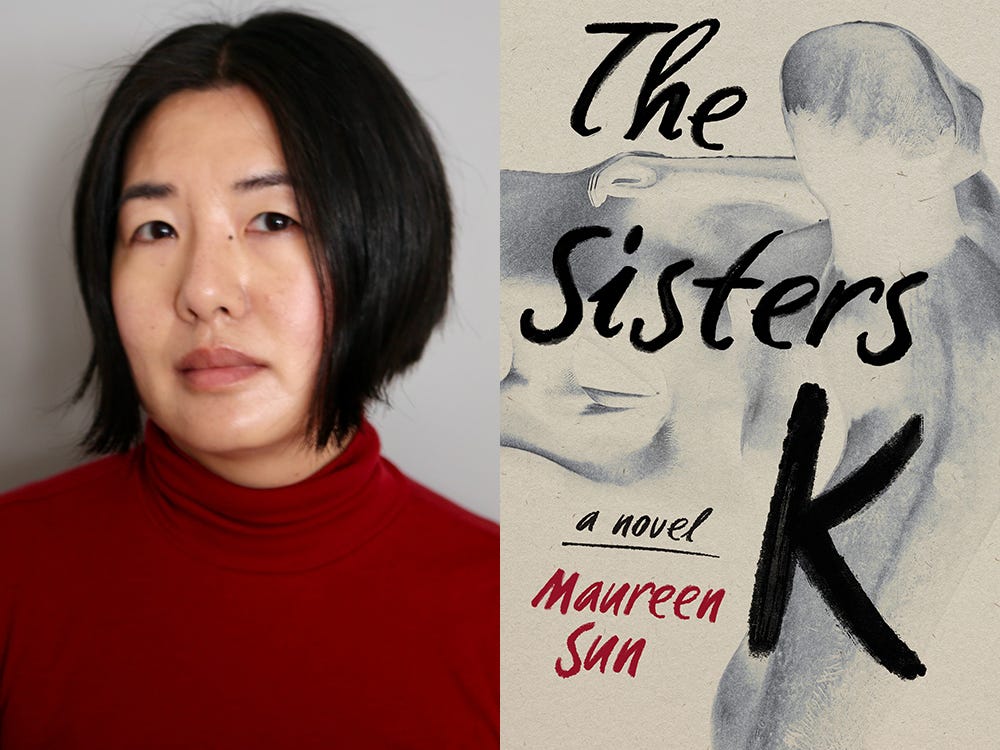
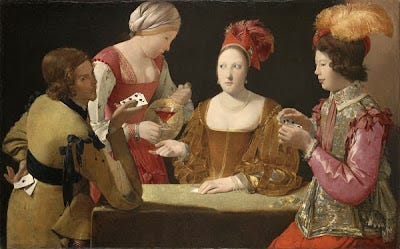
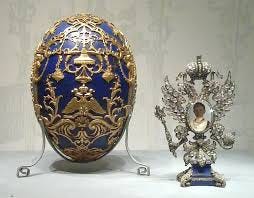

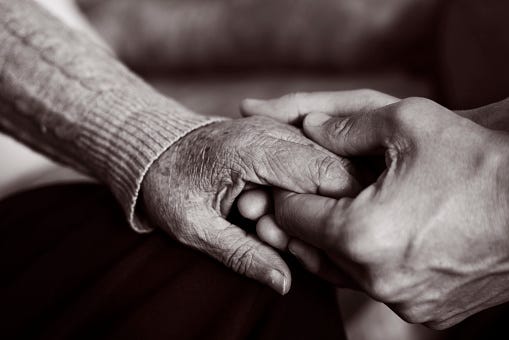
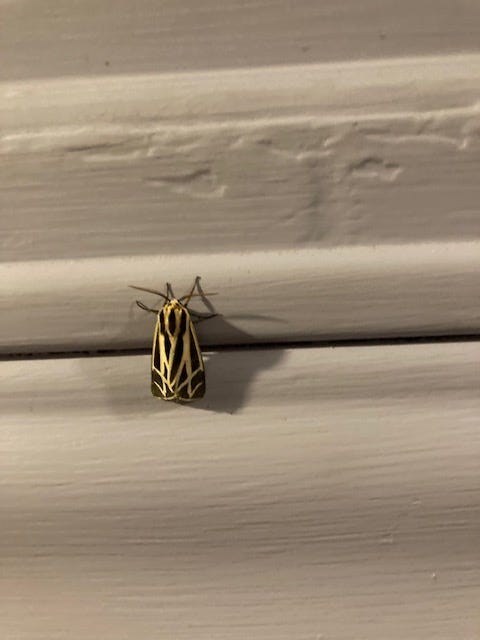
I have bookmarked your review and added this book to my reading list.
Just wow. I’m so happy to see Ms. Gaitskill’s electric, intelligent prose again. I haven’t read a review like this in years. The author must be might indeed to deserve such insightful and detailed praise.